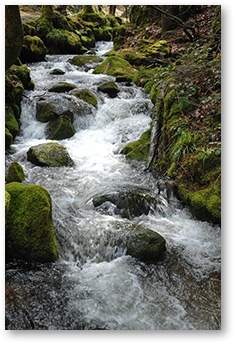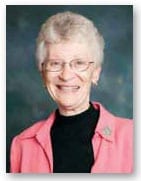Readings for today: Deuteronomy 4:32-34, 39-40; Psalm 33; Romans 8:14-17; Matthew 28:16-20
 How do we portray the living, awesome, tender mystery that we call God? How do we imagine the God whom our Christian tradition reveals as Triune?
How do we portray the living, awesome, tender mystery that we call God? How do we imagine the God whom our Christian tradition reveals as Triune?
The Scriptures give us a wide range of images. The Israelites knew God as creative breath, burning fire, faithful shepherd, protective warrior, just lawgiver. Jesus called God his “Abba” —Father, and also imagined God as a mother hen, a woman in search of a lost coin, a homemaker baking bread, a banquet-giver, a merchant seeking the finest pearl. We will always be stymied in our attempts to describe God, because God is always more than our limited human imagination can encompass.As you reflect on the following creative ways of describing the Trinity, try to remember that our God is always more than we can name:
“I saw and understood that the high might of the Trinity is our Father, and the deep wisdom of the Trinity is our Mother, and the great love of the Trinity is our Lord….The second person of the Trinity is our Mother in nature in our substantial creation, in whom we are founded and rooted, and he is our Mother of mercy….” (Julian of Norwich)
“Jesus shares his life and message with the disciples by opening a space of dialogue, a spacious world in which they can abide. The Trinity itself is the eternal, loving, equal, undominative conversation of God.” (Timothy Radcliffe, OP)
[St. Louise de Marillac prayed that] “Jesus might be the strong and loving bond that unites the hearts of all the Sisters in imitation of the union of the three divine Persons.”
Writer David Cunningham speaks of the Trinity as “source, wellspring, and living water.” Using more personal images, Rev. Jim Cotter suggests “life-giver, pain-bearer, love-maker,” noting that “each is engaged with the other in a creative relationship.”
Theologians tell us that the least incorrect thing we can say of God is: “God is Love.” The symbol of Trinity shows us that relationship, communion, is the very life of God. By our baptism in Christ, we are drawn into that life of God. The gift of the Spirit makes us God’s children and heirs. Like God, we too become capable of pouring ourselves out for others, of living in communion. Today’s feast celebrates this wondrous Love, so deep and broad and wide that we will never be able to plumb its depths.
Sadly, some believers today cannot tolerate others who seek to speak of God in new ways. Instead of narrowing the ways that God can or cannot be named, let us acknowledge the limits of our human language and imagination, and welcome many ways of describing the divine Fullness of God.
With Franciscan Father Richard Rohr, let us stretch our minds and hearts and honor the Trinity as model of relationships, as we pray:
God For Us, we call You Father,
God Alongside Us, we call You Jesus,
God Within Us, we call You Holy Spirit.
Sister Regina Bechtle, SC

Sr. Regina serves as Charism Resource Director for the Sisters of Charity of New York. A retreat leader and spiritual director, she gives presentations to lay and religious groups about St. Elizabeth Seton and our Vincentian-Charity heritage of spirituality.
